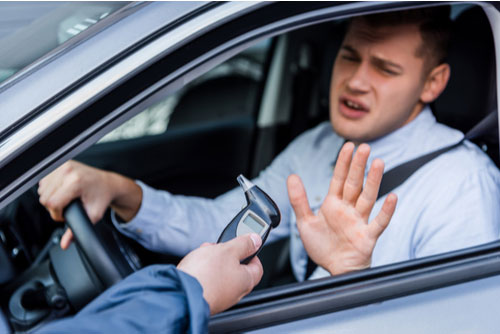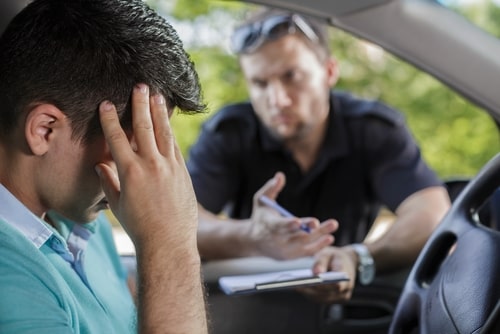Law enforcement is enabled to enforce a DUI law on the general public to prevent people from driving while intoxicated. This, however, needs verification because people may be driving poorly for several reasons, including DUI.
As your Indianapolis DUI lawyer will tell you, the applicable laws for driving while intoxicated are not the same as laws as applicable for other reasons of driving poorly. To ensure that a particular suspect is drunk beyond the permissible limit and should not be allowed to drive on the roads, there are many ways the police are allowed to employ and check. The most important is the Breathalyzer test.
What Is a Breathalyzer Test?
A Breathalyzer is a device that can analyze the alcohol level in your blood and give an accurate reading as to the same. Its units are in BAC (Blood alcohol concentration), and the lowest reading is 0.01. The maximum reading ever shown on the breathalyzer is 1.480 when conducted on a polish man after causing multiple injuries.
According to the DUI laws in Indianapolis, if your BAC level is 0.08 or more, you can legally be charged for drunk driving. However, many people do not appreciate taking the test whether they are drunk or not. So how does consent apply for the breathalyzer test in Indianapolis?
Indianapolis’s Implied Consent Law
Indiana’s legislature follows the implied consent law. According to this law, any officer with probable cause can give you a breathalyzer or a chemical test to verify whether or not you are intoxicated. Driving on any Indiana road automatically implies that you consent to any chemical test by the officer who asks for it. The officer in charge may only do so within 3 hours of finding probable cause and not after that.
A chemical test includes breath, urine, or blood tests individually or combined. The officer can only give you a test if they have found probable cause that the suspect is breaking the law currently or has broken it not long ago and is operating while being intoxicated.
I.C. 9–30-6-1 states, “A person who operates a vehicle impliedly consents to submit to the chemical test provision of this chapter as a condition of operating a vehicle in Indiana.”
What Happens When a Police Officer Has Probable Cause?
A probable cause can be anything you do. Like not steering properly when driving, driving too slowly than considered normal, not being able to stop the vehicle properly when asked, running the red light at intersections, your pupils being dilated when inspected, having slurred speech while talking with the officer, showing improper motor skills while addressing the officer and many more.
When the officer finds at least some of the above issues with you, they can consider it a probable cause and ask to give you a breathalyzer or a chemical test.
The protocol is for them to read you something similar to, “I have probable cause to believe that you are driving this vehicle while intoxicated and must now allow you to submit to a chemical test. I would inform you that refusal to submit to such a test would result in the suspension of your driving license for one year. Are you willing to take the chemical test now?”
If you say yes, the officer or any other authorized person authorized to take the test must follow some strict protocols and inform you the same at every step.
What Happens If You Refuse to Take the Test Regardless?
If the suspect refuses to give consent, refuses to take the test, or simply does not answer, that can be grounds for a refusal of a test, and you will have to face the consequences for the same. Under I. C. 9 – 30 – 6 – 3, refusing to take a chemical test would be admissible in court as evidence against you.
Furthermore, the officer would comfortably be able to get a court warrant to take the test anyway. Now, you are stuck with a warranted test result, and the prosecutor against you would also use the fact that you originally refused the test. This refusal would immediately result in your driving license being suspended for one year regardless of the outcome of the case against you.
Why Do People Refuse the Test in the First Place?
This is usually because most people believe that refusing to take the test would help them as the officer wouldn’t have any evidence against them. The truth is, the officer inspecting you already has evidence against you.
It’s called probable cause when you do any of the abovementioned actions. Even without the test, they can still arrest you and make a strong case for you. And, by refusing to take the test, you show yourself as a person who doesn’t want to comply with the state’s laws.
Furthermore, your driving license will most definitely be suspended for no less than one year for refusing the test. Plus, the officer can simply get a court warrant to administer the test with or without your choice. Therefore, it is always in your best interest to comply with whatever the police officer asks of you and consent to the chemical test. The results of which can be argued in court later.
Don’t You Have Any Option But to Accept the Test?
A field sobriety test does not provide options to skip it for any reason whatsoever. However, the police officer requesting your consent has to follow specific strict guidelines to obtain your consent. If they do not do this, even if you accept the test, its results can be challenged in court and then stricken down.
You do have your right not to take it, but that’s only if the police officer fails to adequately explain the consequences of not accepting to take the test. If the evidence suggests that they did adequately explain to you what would happen if you do not consent to take the chemical test, you would have no option but to accept it.
Call a Top Indianapolis DUI Lawyer!
A field sobriety test, a chemical test, or a breathalyzer test is mandatory when asked with probable cause. The state of Indiana assumes implied consent from every person driving their vehicle on the roads of Indiana. Refusing to take the test will only hurt your chances later and lead to your license being suspended for one year.
To learn more about the breathalyzer test, contact the best Indianapolis criminal defense attorney today.










